
In a recent interview, Arjun Sahgal, M.D., discussed current and emerging research examining the potential of MRI-guided adaptive radiotherapy for treating glioblastomas.

In a recent interview, Arjun Sahgal, M.D., discussed current and emerging research examining the potential of MRI-guided adaptive radiotherapy for treating glioblastomas.

Catch up on the top radiology content of the past week.
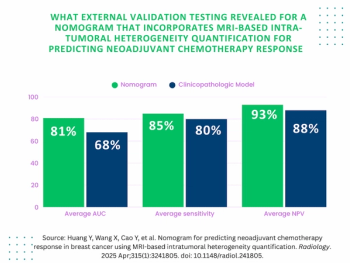
An emerging nomogram model for intra-tumoral heterogeneity quantification with breast MRI demonstrated an average 85 percent sensitivity in external validation testing for predicting pathologic complete response to neoadjuvant chemotherapy for breast cancer.
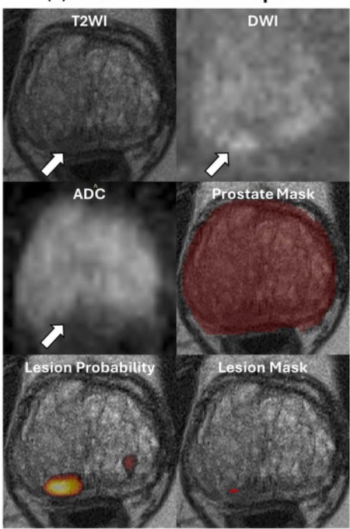
Demonstrating no significant difference with radiologist detection of clinically significant prostate cancer (csPCa), a biparametric MRI-based AI model provided an 88.4 percent sensitivity rate in a recent study.

Catch up on the top radiology content of the past week.

In a new study involving over 120 women, nearly two-thirds of whom had a family history of breast cancer, ultrafast MRI findings revealed a 5 percent increase in malignancy risk for each second increase in the difference between lesion and background parenchymal enhancement (BPE) time to enhancement (TTE).
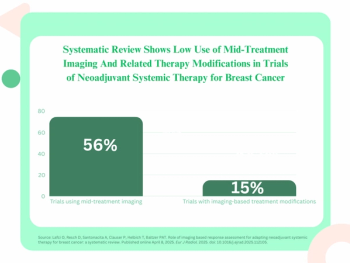
A systematic review of 147 clinical trials assessing neoadjuvant systemic therapy for breast cancer also revealed that mid-treatment imaging was utilized in 56 percent of the studies.

Catch up on the top radiology content of the past week.
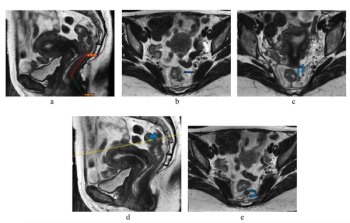
Abbreviated MRI demonstrated a 95.3 percent specificity for rectal cancer and provided strong agreement with the full MRI protocol for T staging and detection of extramural venous invasion, according to newly published research.

New multicenter research suggests that radiomic features derived from breast MRI may enhance prognostic capabilities with disease upstaging for ductal carcinoma in situ (DCIS).
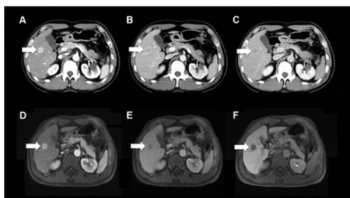
LI-RADS category 5 (LR-5) assessment had an 11 percent higher AUC for detecting hepatocellular carcinoma (HCC) in patients with non-cirrhotic chronic hepatitis C (CHC) in comparison to those with cirrhotic CHC.

Catch up on the top radiology content of the past week.
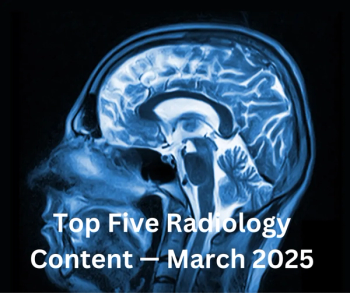
Catch up on the most-well viewed radiology content in March 2025.
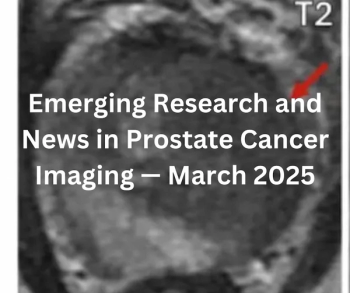
Catch up on the most-well viewed prostate imaging content in March 2025.
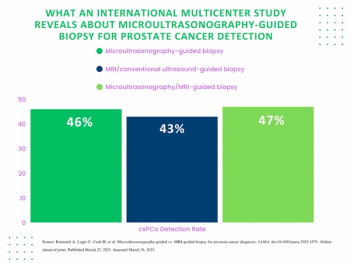
Microultrasonography-guided biopsy offered comparable detection as MRI/conventional ultrasound-guided biopsy in detection of Gleason grade group 2 or higher prostate cancer, according to a new international multicenter study.

Catch up on the top radiology content of the past week.
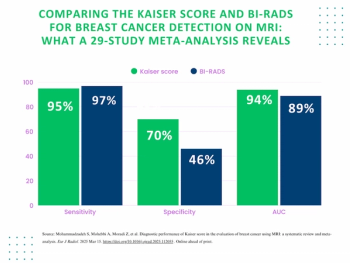
The Kaiser score offers 24 percent higher pooled specificity than the Breast Imaging Reporting and Data System (BI-RADS) for detecting malignancies on breast MRI, according to a 29-study meta-analysis.
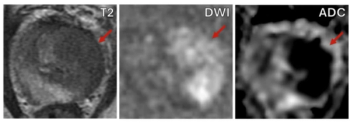
While DCE MRI was deemed helpful in over 67 percent of cases in which it was used, researchers found that monitored prostate MRI exams, which facilitated a 75 percent reduction of DCE MRI sequences, had comparable sensitivity for prostate cancer as non-monitored exams.

Catch up on the top radiology content of the past week.
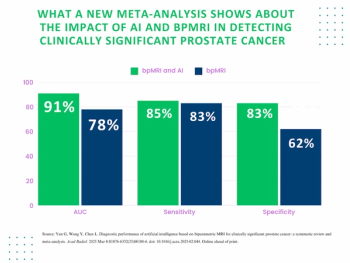
Researchers noted the combination of AI and bpMRI had an average AUC of 91 percent for csPCa detection in contrast to 78 percent for unassisted radiologist interpretation in a recent meta-analysis.

Catch up on the top radiology content of the past week.
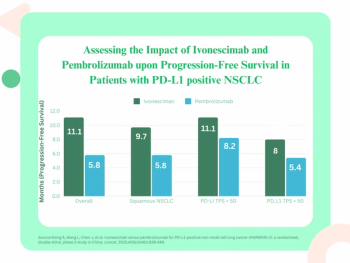
The use of ivonescimab was correlated with a median 5.3-month improvement in progression-free survival (PFS) over pembrolizumab in patients with PD-L1 positive non-small cell lung cancer, according to CT and MRI findings from a phase 3 randomized multicenter trial.
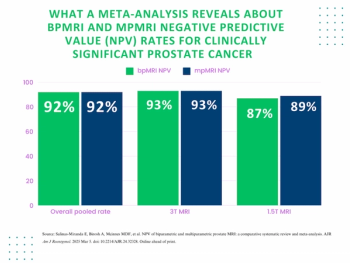
In an 18-study meta-analysis involving over 4,600 patients, researchers found that bpMRI and mpMRI had equivalent pooled negative predictive value (NPV) of 92 percent for clinically significant prostate cancer (csPCa).
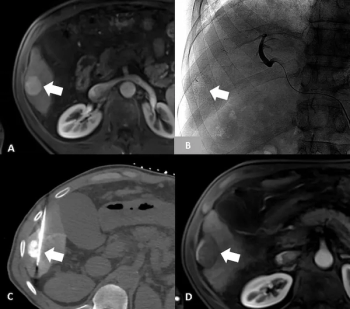
In a comparative study of staging systems for hepatocellular carcinoma, the Barcelona Clinic Liver Cancer (BCLC) system offered the highest likelihood ratio (LR) and lowest Akaike information criteria (AIC) for predicting overall survival after transarterial chemoembolization (TACE) for hepatocellular carcinoma.

Catch up on the top radiology content of the past week.